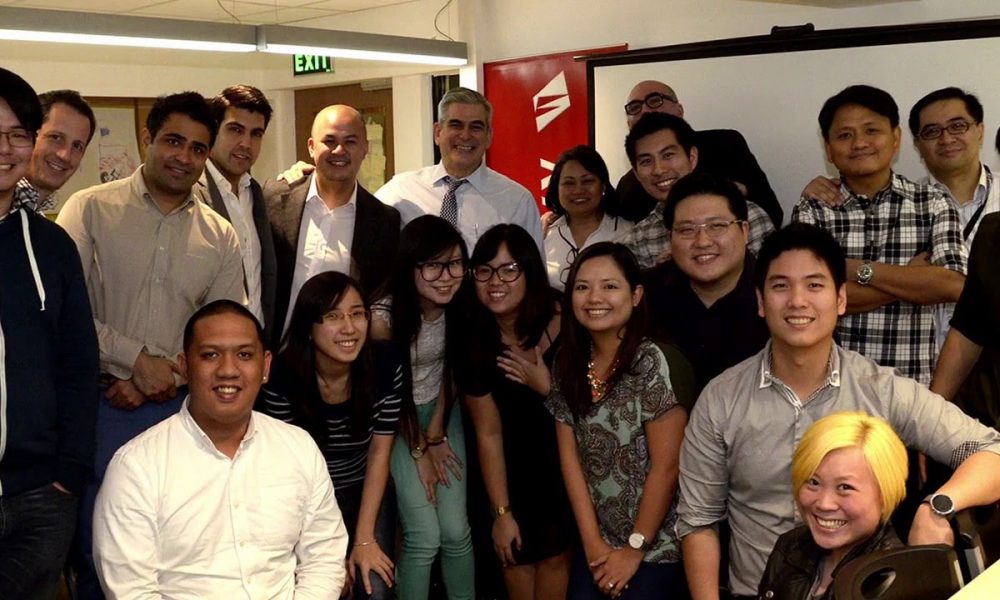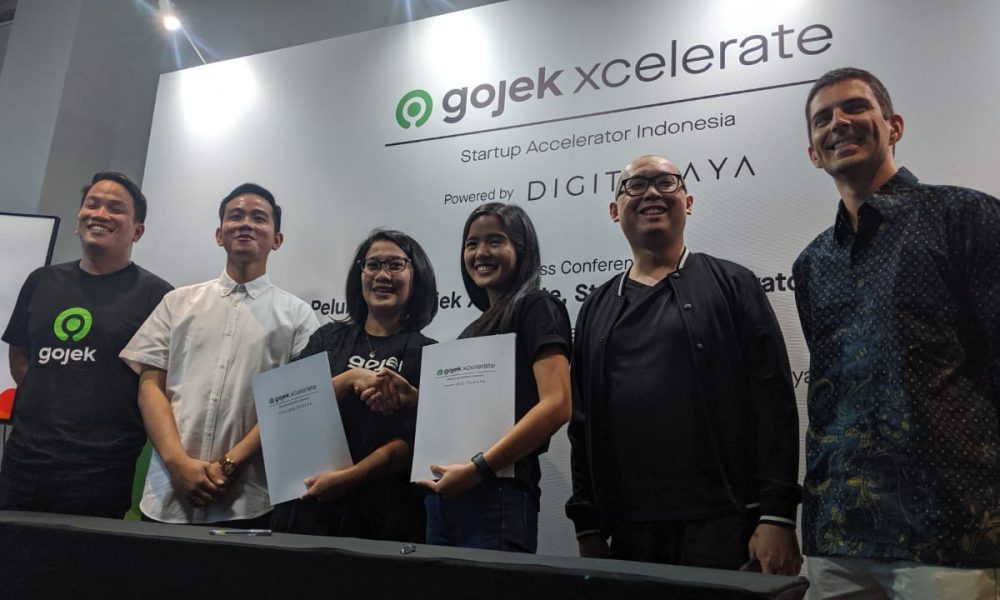Author: vivian
Aspiring Southeast Asian Unicorns to Watch: Vietnam’s Food Ordering App Lozi
Vietnam-based Lozi, a rapidly expanding technology startup that operates two flagship apps Lozi and Loship, is fast gaining traction among global investors and is one of the country’s many potential tech startups that is primed for achieving unicorn status.
Established in 2014, the startup has since then undergone several rounds of funding. It had previously received investments from Golden Gate Ventures and DesignOne Japan for a seven-digit funding.
More recently, its Series B funding round in 2019, which was led by South Korea-based venture capital firm Smilegate Investment, landed a handsome eight-digit funding for the ambitious startup. Investors that have participated in Lozi’s funding rounds over the years include JC Capital, Ascendo Ventures, DTNI, and Hana Financial Group.
Trung Nguyen, chief executive officer and co-founder at Lozi, said that one of the startup’s key defining features are its one-hour delivery services, which not many in the market are capable of doing. Being an intracity e-commerce platform, the company is focused on providing speedy delivery of products from local merchants directly to customers via its fleet of on-demand drivers.
Nguyen believes that its fast and efficient delivery services, which the startup considers as a competitive advantage, will be the primary driver of profitability and growth since an increasing number of consumers nowadays want fast and on-demand delivery choices. Therefore, the companies that can provide the fastest delivery times will come out on top.
Nguyen also shared that the e-commerce startup’s growth rate can be said to be comparable to those of larger companies and businesses with several times more capital and investment than they do. He believes that one of the main reasons why global investors such as Golden Gate Ventures and Hana Financial Group have decided to support and invest in the startup is because Lozi is creating value for them through their profit-driven business model.
The chief executive officer of Lozi further added that, other than the participation of renowned investors, the startup also managed to get the support of prominent individuals from Silicon Valley, as well as the backing of strategic consultants from Australia with deep experience in the banking industry. Hence, Nguyen is confident that Lozi has the required investment and necessary support to drive the company’s growth from being a local startup to becoming a regional unicorn with a valuation of over US$1 billion.
On what strategies the e-commerce startup would employ to achieve unicorn status, Nguyen said that the key to driving long term sustainable growth is by investing and leveraging on new verticals for a faster rate of expansion. Lozi is looking to go beyond its grocery and food delivery services with Lo-supply, a delivery service in the retail supply chain space with the aim of securing its position there. The co-founder of Lozi explained that the focus on Lo-supply is timely as it will enable the startup to capitalize on the explosive growth of Vietnam’s retail supply chain space and expand in this sector further. Moving forward, Lo-supply may become an indispensable driver of profitability and growth for the company’s business.
Presently, the aspiring unicorn Lozi employs a fleet of more than fifty thousand drivers and counts around two hundred thousand merchants on its e-commerce platform, serving the needs of more than one million five hundred thousand consumers in Vietnam with more than sixty thousand transactions daily. The startup expects to generate around US$31 million in revenue for the year 2020.
Kickstart Ventures Earmarks US$200M Fund to Support Philippine Tech Startups in Becoming Unicorns
Kickstart Ventures, a Makati City-based venture capital firm that is one of the Philippines’ most active with investments in Coins.ph, Zalora, C88, Wattpad and Singapore-based video publishing platform iVideoSmart, announced recently that it is on the hunt for promising tech startups in the region as it seeks to leverage its US$200 million funds.
The fund is intended to develop and grow the next generation of technology unicorns within Southeast Asia, as well as to nurture the growth of innovative startups and companies to become the region’s leading industry movers and shakers.
The venture capital company, which is a subsidiary of Globe Telecom, was established in 2014 with just an initial US$2.4 million seed fund but has since grown to assist more than 40 startups and companies worldwide to achieve success, with 30 of those companies and startups being Filippino ones.
At present, Kickstart Ventures is looking to invest in startups that are in the emerging technology and technology-reliant sectors, such as Internet of Things (IoT), artificial intelligence (AI), machine learning, sustainability practices, fintech and payments, enterprise solutions, logistics, e-commerce, cloud computing, data analytics and augmented reality.
In 2019, Kickstart Ventures was given a mandate by Ayala Corp, a major shareholder of Globe, to manage a US$150 million fund that the holding company had designated for venture capital purposes, with an emphasis on companies and startups that can drive scalable, sustainable and innovative solutions in the technology space, including areas such as emerging technology, financial technology, transportation, machine learning, customer service, IoT, cloud computing and more. The fund, known as the Ayala Corp.
Technology Innovation Venture or ACTIVE Fund is geared towards backing startups in their Series A, B and C phases of funding from around the world, revolving around the concepts of smart living, frictionless future, a world of plenty and automation to augmentation. It is understood that each company would receive between US$2 million US$10 million in investment. The venture capital firm will target to make its first initial investment in a startup or company by the middle of 2020.
According to Joan Yao, vice president for investments at Kickstart Ventures, the venture capital company is very interested in seeing more local Filippino startups and companies take the initiative in developing innovative solutions that go beyond just the Philippines to address the needs of Southeast Asia’s immense population of more than 655 million people. Additionally, Yao added that the ACTIVE Fund is also looking at investing in solutions themed around sustainability practices such as waste management, energy management and water management, such as water purification and energy storage solutions.
On the potential of local Filippino startups to achieve unicorn status, Yao is of the opinion that much depends on how swiftly the Philippines are at mass adopting digital technologies. There is still a need for the country to build a sustainable and viable digital economy that is focused on the inclusion of its people so that more of them will become involved and participate in digital and online transactions to boost the ecosystem. In addition, local startups will need to broaden their horizons and look beyond the Philippines and expand to new regional markets if they wish to become unicorns.
Indonesia eCommerce Store JD.id now officially a Unicorn
Indonesia is fast becoming the land of unicorns for the region of Southeast Asia. JD.id, a subsidiary of Chinese e-commerce giant JD.com that operates an e-commerce platform in Indonesia, has recently confirmed to an Indonesian news portal that the company’s current valuation has surpassed US$1 billion, which makes it the sixth company to achieve unicorn status in the country.
With the latest valuation, JD.id will join other Indonesian luminaries such as Tokopedia, Gojek, Bukalapak, Ovo and Traveloka in the country’s unicorn ranks. Of particular note is that with the latest addition of JD.ID to its unicorn ranks, Indonesia now has three unicorn companies that operate in the e-commerce space – Tokopedia, Bukalapak, and JD.id.
Even though the e-commerce company JD.id did confirm that its valuation has now exceeded US$1 billion, it did not disclose any other specific details such as its exact valuation or the funding sum acquired to cross the US$1 billion valuation mark. It is understood that multiple entities were involved in the company’s latest financing, with some speculating since last year that fellow Indonesian unicorn Gojek was one of the parties that funded the company. When reached for comment about the matter from a news source, JD.id declined to confirm the speculation that Gojek had funded the company.
According to news sources, Gojek had announced in February of 2019 that the super app unicorn company is continuing its strategic partnership with Chinese e-commerce giant JD.com in Indonesia through a joint venture with JD.id. The joint venture will see the seamless integration of both services, which will enable consumers and users to directly access JD.ID products on Gojek’s platform.
Jakarta-based JD.id was launched in Indonesia in November 2015 as a result of a strategic collaboration between Provident Capital, an Indonesian conglomerate-affiliated regional investment firm, and JD.com. The company currently operates across more than 350 Indonesian cities, providing delivery services for a myriad range of products which include electronic devices, household appliances, clothing, fashion accessories, and sports products.
According to JD.id, the company’s mission is to provide dependable, safe, and efficient customer experience by offering original, high quality and reliable products at affordable prices. Complemented by its vast network of partners spread across the islands of Indonesia and its own fleet of logistics, the newly minted unicorn company seeks to bring the online shopping experience to more consumers across the vast island nation. The e-commerce unicorn currently boasts more than 20 million users on its platform and is aiming to become Indonesia’s most trusted e-commerce company.
According to a regional report, the e-commerce market share in Indonesia is forecasted to grow to almost US$80 billion by the year 2025, which represents an almost four-fold increase from its US$21 billion e-commerce market share in 2019. The new unicorn JD.id will also have to contend with other regional powerhouses such as Lazada, Shopee, and fellow Indonesian e-commerce unicorns Bukalapak and Tokopedia in the competitive e-commerce space. While other e-commerce giants are focusing on establishing partnerships, JD.id is focusing on fortifying its logistics, namely its same-day delivery service, in order to distinguish itself in the crowded market.
Unicorn Gojek Unveils Third Batch of Startups for Its Startup Acceleration Program, Gojek Xcelerate
Gojek, the first Indonesian unicorn superapp company that is now a decacorn company with a valuation of over US$10 billion, welcomed its third batch of startups that were chosen from the local retail sector for the third iteration of its Gojek Xcelerate startup acceleration program.
Aimed at fostering more unicorns among Indonesia’s promising startups to create a more lasting social impact, the accelerator program is done in collaboration with world-class startup accelerator Digitaraya, a startup accelerator that is also aimed at growing Indonesia’s startup ecosystem.
Besides Digitaraya, the nine startups that were selected for the latest edition of the accelerator program can also leverage the experience and knowledge of leading experts from UBS Bank, Google, and McKinsey.
According to the unicorn company Gojek, the latest batch of startups were chosen based on the fact that consumer tastes and behavior are rapidly evolving, as consumers increasingly attempt to find more ways and means of purchasing services and products that can afford them more convenience and speed.
The Gojek Xcelerate program will help these promising local retail startups to learn how to adapt and thrive in a competitive environment and keep pace with consumer tastes and behavior that are constantly evolving while enabling them to leverage on Gojek’s vast network of merchants, investors, and users.
The third batch of local startups include:
- Pijak Bumi, a sustainable fashion brand startup founded in 2016 that sells sustainable and eco-friendly footwear through its website. The startup is known for using vegetable-tanned leather as the material of choice for making their shoes.
- KIddo, a startup that aims to bring together parents and family activity service providers via its ticketing platform for playing, learning, vacationing and other family-oriented activities.
- Gigel, a startup that provides an online platform for parents to rent out various kinds of equipment for babies, such as bathtubs, strollers, baby beds, car seats, and toys. They believe that it makes more economic sense to rent these items as many of them have a short shelf life and can be quite expensive.
- Callista, a startup that provides specially formulated skincare products that are tailored specifically for each individual consumer’s needs.
- Heiden Heritage, which was established in 2016 with the aim of showcasing the skills and expertise of Indonesia’s craftsmen in making shoes and footwear.
- Sugar Technology, a tech startup that aims to infuse technology into everyday lifestyle products. Some of the products that it offers include smart fingerprint padlocks, smart backpacks, smart tumblers and smart luggage suitcases.
- Meyerfood, a poultry supplier startup that introduced Indonesia’s first chicken-focused app that makes it easier for consumers, restaurants, and caterers to get quality chicken meat.
- Etanee, a digital supply chain platform that connects farmers, fishermen, and suppliers to distribution channels such as wholesalers, traders and retail merchants, which are all connected with end consumers.
- Mad for Makeup, a startup that makes and sells a wide range of beauty and cosmetic products. It claims itself to be a rebel beauty company that believes beauty is a right, and sells revolutionary cosmetic products at affordable and empowering prices.
The Indonesian unicorn Gojek hopes that these nine promising retail startups will take the opportunity afforded by its Gojek Xcelerate program to fine-tune their approach in analyzing consumer behavior to come up with appropriate solutions for overcoming challenges such as consumer trust and market acceptance. The unicorn company also emphasized that it is vital for the startups to maintain sustainability even as they seek to accelerate their growth.
Unicorn Grab Acquires Robo-advisory Company Bento Invest, to Expand into Retail Wealth Management
Regional ride-hailing unicorn Grab recently announced that it has acquired Bento Invest (Bento), a robo-advisory startup based in Singapore that provides business-to-business and business-to-consumer digital wealth management solutions. Financial details regarding the acquisition were, however, not provided.
The acquisition of Bento by Grab will enable the ride-hailing giant to expand its range of financial and investment services for its ecosystem of drivers, users and merchants through its app, and gain a firm foothold in the retail wealth management space. Post-acquisition, it is understood that Bento will operate under a new brand as GrabInvest, which is to be part of the Grab Financial Group.
Grab Financial Group, which is the financial services arm of the unicorn company, is currently comprised of GrabInsure for insurance, GrabPay for payments, GrabFinance for lending and GrabRewards for rewards. GrabInvest will be the fifth vertical in this arrangement of financial services and will play a crucial role as Grab seeks to become a leading player in Southeast Asia’s fintech space.
The new core vertical for Grab Financial Group will start launching products for the Singapore market via the Grab app by the middle of 2020, with the other Southeast Asian markets to follow. As part of the deal, Chandrima Das, who is the chief executive officer and founder of Bento, will become the new head of wealth management at Grab Financial Group. Before its acquisition by Grab, Bento is one of the top six business-to-business and business-to-customer robo advisors globally, according to CB Insights.
GrabInvest is an effort by Grab to widen and improve the accessibility and affordability of financial products to more users that were otherwise restricted to just conventional institutional investors or the very wealthy. As a retail wealth management solutions provider, the unicorn company has reassured users that GrabInvest will be fully transparent and will disclose all fees without any hidden charges, fees or elements. It will also fully adhere to the Monetary Authority of Singapore Capital Markets Services license’s regulatory and legal standards.
According to Reuben Lai, Grab Financial Group’s senior managing director, it is becoming ever more vital for the people of Southeast Asia to equip themselves with the right financial knowledge and tools in order to face an economic environment that is constantly changing, for better or worse, due to high volatility and unpredictable forces, as well as to protect both themselves and their loved ones. Even though retirement planning and wealth management solutions are out of reach for the majority of people in Southeast Asia, it is very crucial for them to build sustainable wealth for both themselves and future generations.
Grab has been active in the fintech space lately. The latest move by the unicorn company comes just after it had formed a strategic partnership with Singapore Telecommunications Limited (Singtel), one of the big four telcos operating in Singapore, to establish a consortium in a bid to apply for a full digital banking license from Singapore’s central bank, the Monetary Authority of Singapore.
Additionally, the superapp company had recently introduced Southeast Asia’s first numberless payment card via a partnership with MasterCard, and it had also been chosen by the Malaysian government late last year as an official e-wallet partner for the e-Tunai Rakyat Initiative, which is an initiative launched by the government in an effort to promote the adoption of e-wallets in the country. The latest acquisition of robo-advisory Bento by the unicorn superapp Grab and its rebranding to GrabInvest is one more step towards making crucial financial and wealth management solutions and products more accessible and affordable to the people of Southeast Asia.





